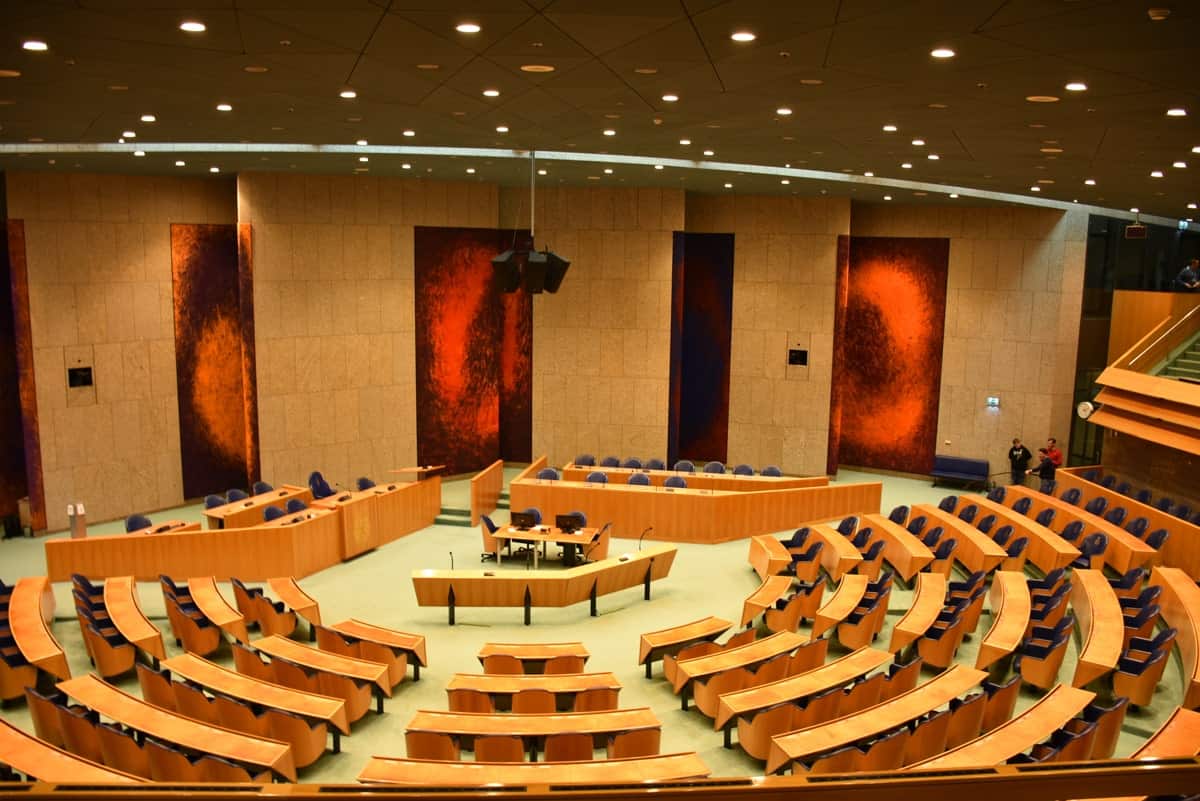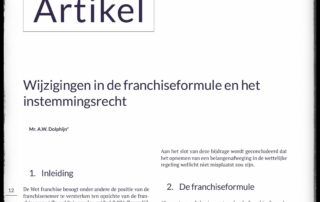Article Franchise+: “The pitfalls of the standstill period” – mr. RCWL Albers – Dec 22, 2021
With the arrival of the Wet franchise this year, a standstill period has also been introduced. This standstill period should contribute to giving franchisees sufficient time for consideration and research before concluding a franchise agreement. The idea is also that franchisees, without feeling that they cannot go back, should be able to refrain from entering into the franchise agreement and any additional agreements and investments. A closer look at this regulation, however, shows that it does not automatically offer a solution in all cases. This contribution examines the pitfalls of the standstill period when entering into agreements related to the franchise agreement.
Systematic standstill period
The standstill period in the Franchise Act means that a franchisor must provide all relevant information in a timely manner, at least four weeks prior to the conclusion of the franchise agreement. The law specifies which information must be provided, whereby the legislator has also stipulated that a franchisor must provide all information that it can reasonably suspect is important for the conclusion of the franchise agreement. Because of this broad wording, in my opinion it is advisable, in case of doubt, to always provide available information.
During the minimum period of four weeks, the franchisor may not:
a. amendment of the franchise agreement submitted for review, unless this is to the advantage of the franchisee;
b. entering into the Franchise Agreement or any related agreement other than a confidentiality agreement; or
c. get to make payments or investments related to the franchise agreement yet to be concluded.
Agreements Related to the Franchise Agreement
In the event that a franchisor nevertheless enters into a franchise agreement or other agreement with the franchisee in violation of the above regulations, these agreements are voidable. The franchisee can then invoke annulment as a result of which he is not (any longer) bound by any provision in that agreement and can claim repayment of any payment made on the basis thereof.
Insofar as it concerns the franchise agreement that is concluded (too early), the regulation is clear. However, as soon as it concerns related agreements that are concluded in violation of the standstill regulation, such as a rental agreement or, for example, a purchase agreement with regard to the (inventory) of a franchise location, the regulation does not always offer a solution.
A franchisee’s possibility of sanction only arises when the franchise agreement is concluded and the legislator seems to have overlooked the fact that a franchise agreement may never be concluded.
In order for the Franchise Act to apply and to be able to invoke the voidability of the related agreement, the franchisee will first have to conclude a franchise agreement, even though it has been established that he does not want this. In addition, the franchisee will also have to be fairly certain of his claim for annulment, in order to prevent that, in addition to the bound agreement, he is also unintentionally bound by a franchise agreement. The purpose of the standstill period, namely to prevent an intended franchisee from taking irreversible steps towards concluding a franchise agreement, seems to be counterproductive here.
In addition, the literal text of the law only relates to the conclusion of agreements between franchisor and franchisee. However, the franchisee may also enter into such an agreement with third parties, for example with a landlord (not being the franchisor) or a group company associated with the franchisor in which the property is housed.
The Franchise Act offers no solution at all for the situation in which the franchisee, in his enthusiasm, has already concluded a rental agreement with a third party not affiliated with the franchisor. Based on the literal text, the Franchise Act also does not seem to offer a solution in the event that the franchisee enters into a rental agreement with a group company of a franchisor. The legislator has not stated in the standstill regulation that it also relates to the conclusion of agreements with group companies of the franchisor. With regard to the standstill period, the explanatory memorandum refers to being a lessor directly or indirectly, but it has not been specifically elaborated in law, leaving room for interpretation.
In my view, however, it is well defensible that such an agreement with a group company of a franchisor falls under the scheme. Incidentally, the same can be argued for, for example, a financing agreement with banks that, partly due to their special duty of care, should hardly be able to ignore the legal protection of the franchisee, even if this does not apply according to the literal text.
Conclusion
In short, the standstill regulation in the Franchise Act does not seem to have been well thought out insofar as it concerns the conclusion of agreements related to the franchise agreement (in violation of this regulation). It is possible that general contract law may offer a solution for franchisees who unintentionally turn out to be bound by an agreement related to the franchise agreement, but it is a pity that the legislator has not provided for this and that case law is therefore first required.
Ludwig & Van Dam lawyers, franchise legal advice.
Do you want to respond? Then email to albers@ludwigvandam.nl

Other messages
Mitigation of fine due to ‘dominant position’ of franchisor
Mitigation of fine due to 'dominant position' of franchisor ...
It is a non-competition clause at the end of the lease
In the judgment of 26 March 2024, ECLI:NL:GHSHE:2024:1035, the Court ...
Looking ahead: Bottlenecks at the end of the franchise agreement
Of course, everyone starts a collaboration with good courage. But ...
Not just a successful appeal to incorrect forecasts
Not just a successful appeal to incorrect forecasts Introduction ...
Changes to the franchise formula and the right of consent
An article by Mr. was published in the leading legal ...
The National Franchise podcast
Guests on the National Franchise podcast are: Theodoor Ludwig ...







